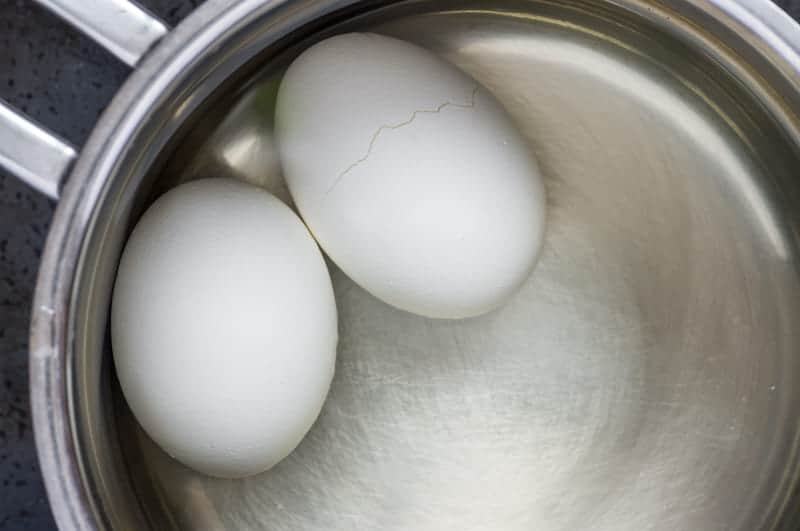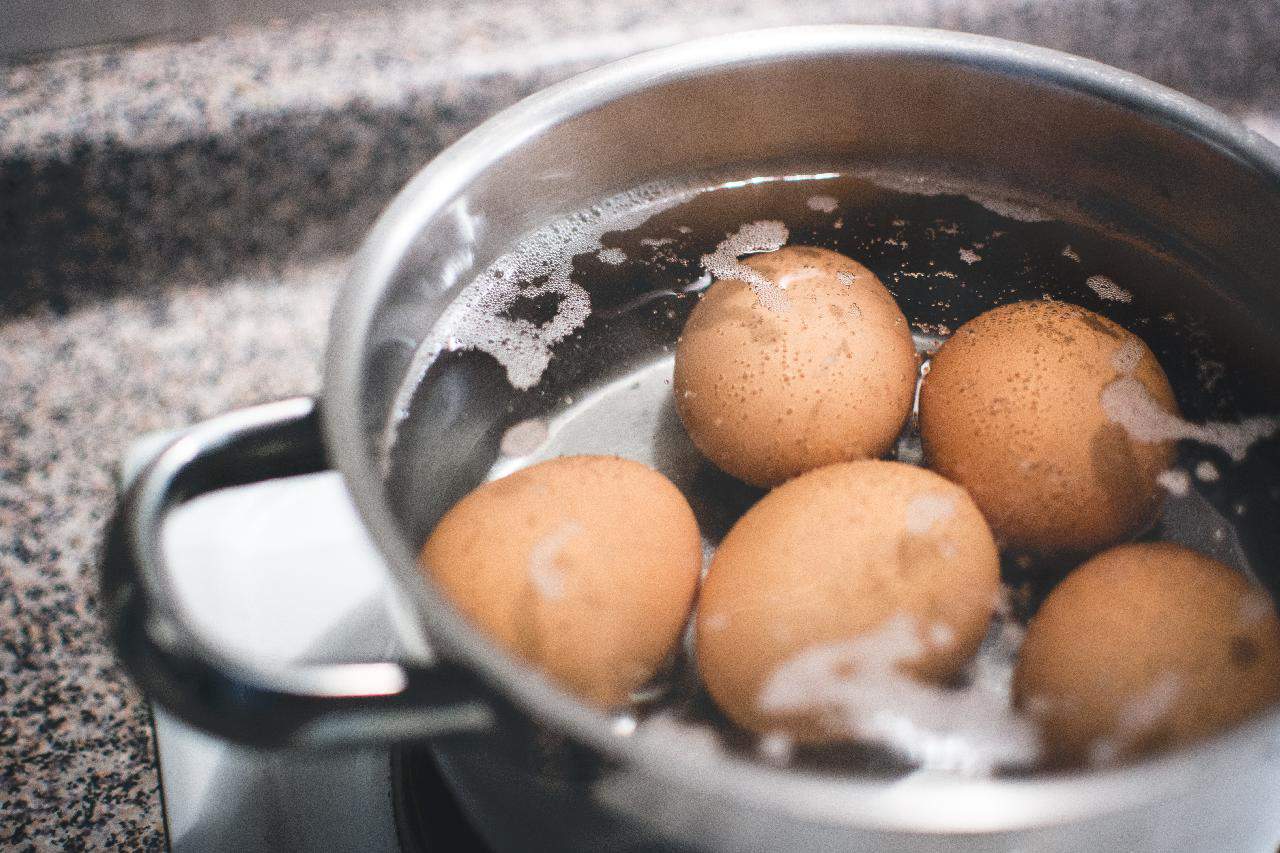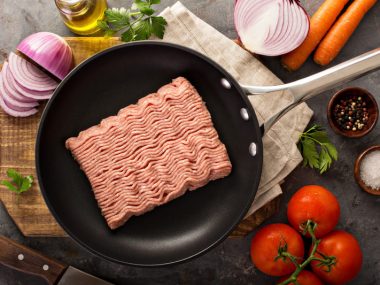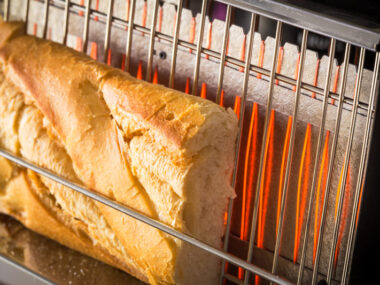Boiling eggs might seem like the easiest thing to do in the kitchen but there are certain aspects you need to pay attention to so you avoid cracking their shell.
To boil perfect eggs that are as soft or as hard as you want them to be, you might have to be familiar with the boiling time and different other conditions that offer you the perfect eggs at the end of your cooking.
In summary, your eggs will crack easier if you take them from a cold temperature like the fridge, directly into boiling water. Furthermore, if you put too many eggs in your pot, they will have an increased risk of cracking as well.
So, make sure to keep an eye on the temperature and the number of eggs you boil at once, in order to avoid cracking their shell.
Different Ways To Prevent Cracking Your Eggs During Boiling
There are certain ways that you can try to maintain your eggs intact as you are boiling them. You can combine the following methods or you can try them separately.
Prepare your eggs properly before boiling them
Many times, eggs will crack during the boiling time because you didn’t prepare them the right way. If you want to prevent such a situation, make sure you get your eggs ready for the boiling process by allowing them to reach room temperature.
Most people store the eggs in the fridge. If you want to boil your eggs, it is important to get them out of the fridge at least 30 minutes before you boil them.
That way, they can adjust to room temperature. Eggs often crack because when you place them in hot water, the gas inside the shell expands.
You can also release the gas within the shell by stabbing your eggs gently with a safety pin on the larger end of it. This little hole will facilitate the release of the gas as you boil the egg and reduce the risk of cracking the shell.
The last aspect you will have to pay attention to before boiling the eggs is the way you place them in the pot or in the saucepan, depending on what you prefer to use as a boiling container.
Leave enough space between the eggs so they will not touch each other. Boil one layer of eggs each time and make sure they don’t get too crowded together as the weight could increase the hazard of cracking.
Expose your eggs to heat the right way
Now that you prepared the eggs the right way, you will also want to boil them correctly to avoid cracking. You will have to cover the eggs in the pot that you will use with tap water and not boiling water.
Make sure you don’t pour the water directly on your eggs but more on the side of the pan so it gently covers them without impacting the shell directly.
Heat the eggs and water up until they reach the boiling point by utilizing medium heat. It is very important not to bring them to a boil too fast as you can cause their shells to crack easier.
The most common mistake people do is dropping the eggs in a pot of hot or boiling water. This is the worst thing to do as it will cause the eggs to crack due to the impact. Or the difference in temperature.
Extra Tips And Tricks
You can avoid waiting for your eggs to adjust to room temperature after you take them out of the fridge, by soaking them in lukewarm water. Adding vinegar to the water that you boil the eggs in, might also help prevent the cracking of the shell.
Make sure to add the vinegar at the same time you add the eggs and only add 1 teaspoon of it for each egg. Vinegar helps eggs coagulate faster and prevents cracking. Just make sure to not add too much vinegar as the eggs might acquire a different taste.
Last but not least, add a teaspoon of salt to the water as you boil your eggs. Salty water will not only prevent cracking but it will also make the eggs easier to peel.
How To Hard Boil Eggs?
To obtain perfectly hard-boiled eggs, you will have to pay attention to the time you let them sit in boiled water.
Add your eggs in one layer on the bottom of the pan and cover them with water. Six eggs should be covered with at least one inch of water on top of the surface of the eggs. And if you boil between seven and 12 eggs you should cover them with two inches of water.
Bring your water and eggs to a boil and let them sit on the stove for ten to 12 more minutes in the boiled water after you turned off the heat. It is important to cover your pan as you let your eggs sit in the boiled water.
Also, if your stovetop will not retain heat very well, you might want to lower the heat to a minimum while you let your eggs sit, instead of turning it off.
This method prevents the eggs from overcooking since you will turn the heat off or reduce it to a minimum.
How To Soft Boil Eggs?
When it comes to boiling soft eggs, you can do it as you normally would, but you will adjust the time.
Just put your eggs in the pan along with cold water and cover them 1-2 inches, depending on how many eggs you are boiling.
Turn the heat off once your water reached a boiling point and let them sit on the stove for about 6-7 minutes. You can let them sit on the stove with the heat turned to a minimum if you are afraid that they will get cold rather than getting slowly cooked.
Check one egg to see if you are satisfied with the result and then decide if you will remove all of them from the pan or give them a few minutes more to cook.
Why Do Eggs Crack When Boiling?
Eggs crack during boiling time mainly due to the difference in temperature from cold to hot. This causes the gas within the shell to expand and create cracks in the shell.
Eggs are more prone to cracking if you add too many of them to the pan as well. Or if you place them in the layer. The weight will make the eggs crack a lot faster and you will not obtain the perfectly boiled eggs you want.
However, you can easily avoid such situations by following the tips in this guide to get perfectly boiled eggs.
Last Tips
When you are boiling eggs, the type of stove you have as well as how old are your eggs will make a difference as well.
Therefore, try to experiment with the tips in this guide until you find the best system for your tastes and preferences. However, you can be sure that your eggs will not crack if you take all the prevention measures!




